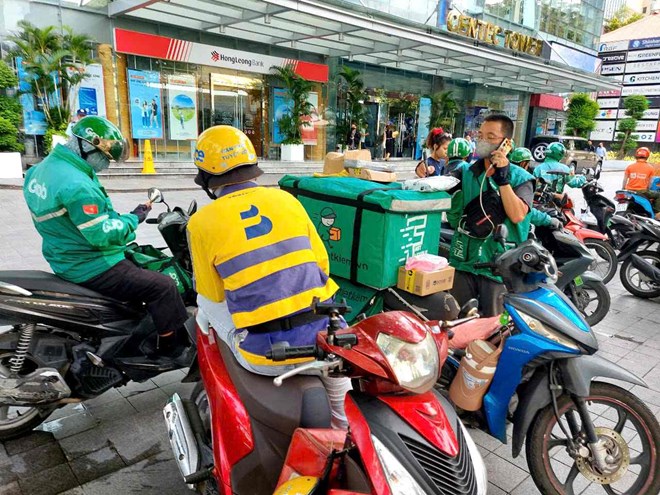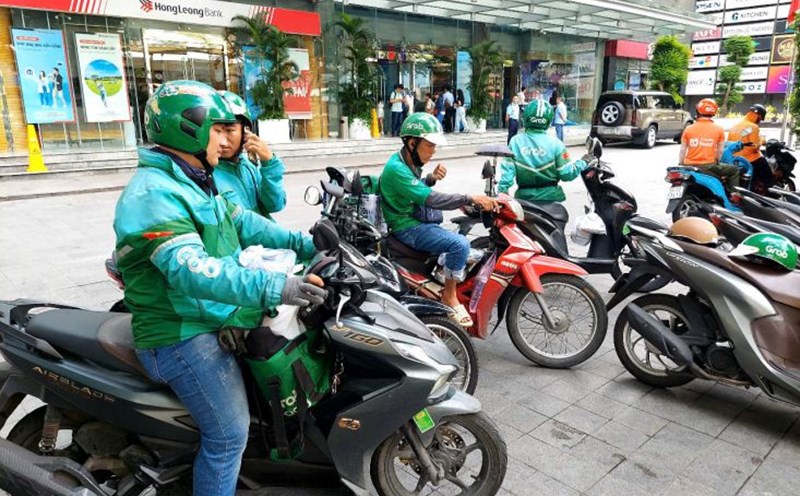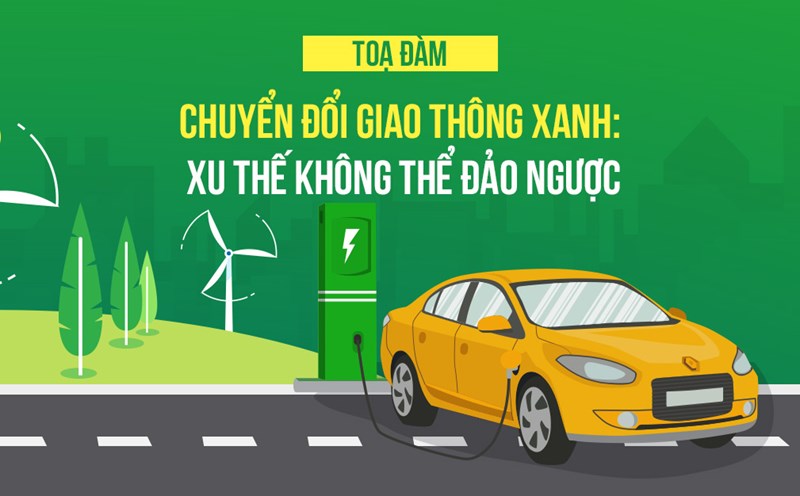Ho Chi Minh City is preparing to carry out a "green revolution" in the transport sector when the Ho Chi Minh City Institute for Research and Development (HIDS) has just completed the final draft of the project to convert 2-wheeled vehicles from gasoline to electric for technology drivers and deliver goods.
The goal is that by the end of 2029, all 400,000 gasoline motorbikes currently used by drivers in the area will be replaced by electric vehicles.
According to HIDS, this is part of Ho Chi Minh City's emission control project chaired by the Department of Construction. The project aims to completely reduce polluting emissions from two-wheeled vehicles belonging to the group of technology drivers and delivery workers - a force that has been developing strongly in recent years.
The roadmap is divided into 4 phases:
Phase 1 (from now until December 2026): Converting 30% equivalent to 120,000 vehicles.
Phase 2 (until December 2027): 50% conversion, reaching 200,000 vehicles.
Phase 3 (until December 2028): Up to 80% with about 320,000 vehicles.
Phase 4 (end of December 2029): Complete 100% conversion, equivalent to 400,000 vehicles.
HIDS believes that this large-scale transformation process is not only a technical or economic issue, but also closely related to the legal corridor and the coordination mechanism between the state - businesses - drivers.
Therefore, the project is designed with mandatory technical milestones, combined with financial incentive policies and conversion support to ensure feasibility.
Some important milestones in the policy roadmap:
From 1.2026: Only allow signing new contracts with electric vehicles on ride-hailing platforms. Gasoline vehicles can only be maintained if they have registered before this time frame.
From 1.2027: Limit gasoline vehicles operating during peak hours in low emission zones.
From January 2028: Tighten emission control, completely ban gasoline vehicles from operating in pilot areas such as Can Gio and Con Dao.
From December 2029: Completely ban gasoline vehicles from participating in technology car calling services in Ho Chi Minh City.
In addition, localities with a high rate of traffic electrification will be given the right to open "green lanes" to prioritize electric vehicles, or issue a resolution to green all traffic if the rate reaches over 90%.

According to HIDS's analysis, switching from gasoline vehicles to electric vehicles will not only help reduce up to 750 tons of CO2 in 5 years, but also bring clear economic efficiency to drivers. On average, each electric vehicle only costs about 3,000 - 5,000 VND/charging, enough to run 50 - 80km, much lower than the cost of traditional fuel. The simple structure of electric vehicles also helps reduce maintenance costs.
Drivers can save from 300,000 - 400,000 VND per month, equivalent to nearly 5 million VND/year. With the increasingly improved lithium-ion battery trend, increased battery life, and the long-term efficiency of electric vehicles is further consolidated.
Despite the many benefits, there are still challenges: high initial investment costs, lack of charging infrastructure and longer charging time for gas. To overcome this barrier, HIDS proposes a series of strong support policies from the city:
- Exemption from 100% of registration fees, license plate registration, VAT for 2-wheeled electric vehicles purchased by technology drivers in the period of 2026 - 2029.
- Providing preferential loans for car and battery purchases, lower interest rates than the market, flexible loan terms (24 - 30 months), simple approval process, complete digitalization.
- Credit guarantee mechanism from local authorities, technology driver associations or unions.
- Automatic daily/week debt collection, minimizing risks for banks.
- voucher, direct discount, battery warranty, specialized income insurance.
In addition, the city also plans to support conversion for tens of thousands of drivers in disadvantaged and near-poor groups, according to the principle of "early conversion - great benefit".
Technology enterprises such as Grab, Be... are also called for in-depth participation in the project. Forms of support include: communication of electric vehicle benefits, bonus from 500 - 1,000 VND for each electric vehicle trip, encouraging users to choose environmentally friendly services.
In particular, foreign drivers operating in Ho Chi Minh City are also fully subject to policies such as drivers residing in the city, but still have to comply with specific local regulations.











